I'm starting a new app in 5.3 and want to implement the solution for the auth check as stated here
I'm using the register and login models out of the box for 5.3. I've only worked a month on Laravel so struggling to fully interpret the solution.
I moved the HomeController.php to the Auth folder under controllers and added the following use statements: use App\User;
use Illuminate\Support\Facades\Auth;
I editd the HomeController constructor as follow:
public function __construct()
{
//$this->middleware('auth');
$this->middleware(function ($request, $next) {
$this->user= Auth::user();
return $next($request);
});
}
Here's my controller screenshot. 
Still get the "Session store not set on request." error when I try to register. I read this answer as well, but need more guidance please. Just want to get 5.3 out of the box authentication to work. Here is my Auth folder structure.
Here is my routes/web.php
RouteServiceProvider.php
<?php
namespace App\Providers;
use Illuminate\Support\Facades\Route;
use Illuminate\Foundation\Support\Providers\RouteServiceProvider as ServiceProvider;
class RouteServiceProvider extends ServiceProvider
{
protected $namespace = 'App\Http\Controllers';
/**
* Define your route model bindings, pattern filters, etc.
*
* @return void
*/
public function boot()
{
//
parent::boot();
}
/**
* Define the routes for the application.
*
* @return void
*/
public function map()
{
$this->mapApiRoutes();
$this->mapWebRoutes();
//
}
/**
* Define the "web" routes for the application.
*
* These routes all receive session state, CSRF protection, etc.
*
* @return void
*/
protected function mapWebRoutes()
{
Route::group([
'middleware' => 'web',
'namespace' => $this->namespace,
], function ($router) {
require base_path('routes/web.php');
});
}
/**
* Define the "api" routes for the application.
*
* These routes are typically stateless.
*
* @return void
*/
protected function mapApiRoutes()
{
Route::group([
'middleware' => 'api',
'namespace' => $this->namespace,
'prefix' => 'api',
], function ($router) {
require base_path('routes/api.php');
});
}
}
The Kernel:
<?php
namespace App\Http;
use Illuminate\Foundation\Http\Kernel as HttpKernel;
class Kernel extends HttpKernel
{
/**
* The application's global HTTP middleware stack.
*
* These middleware are run during every request to your application.
*
* @var array
*/
protected $middleware = [
\Illuminate\Foundation\Http\Middleware\CheckForMaintenanceMode::class,
];
/**
* The application's route middleware groups.
*
* @var array
*/
protected $middlewareGroups = [
'web' => [
\App\Http\Middleware\EncryptCookies::class,
\Illuminate\Cookie\Middleware\AddQueuedCookiesToResponse::class,
\App\Http\Middleware\VerifyCsrfToken::class,
\Illuminate\Session\Middleware\StartSession::class,
\Illuminate\View\Middleware\ShareErrorsFromSession::class,
\Illuminate\Routing\Middleware\SubstituteBindings::class,
],
'api' => [
'throttle:60,1',
'bindings',
],
];
/**
* The application's route middleware.
*
* These middleware may be assigned to groups or used individually.
*
* @var array
*/
protected $routeMiddleware = [
'auth' => \Illuminate\Auth\Middleware\Authenticate::class,
'auth.basic' => \Illuminate\Auth\Middleware\AuthenticateWithBasicAuth::class,
'bindings' => \Illuminate\Routing\Middleware\SubstituteBindings::class,
'can' => \Illuminate\Auth\Middleware\Authorize::class,
'guest' => \App\Http\Middleware\RedirectIfAuthenticated::class,
'throttle' => \Illuminate\Routing\Middleware\ThrottleRequests::class,
];
}

